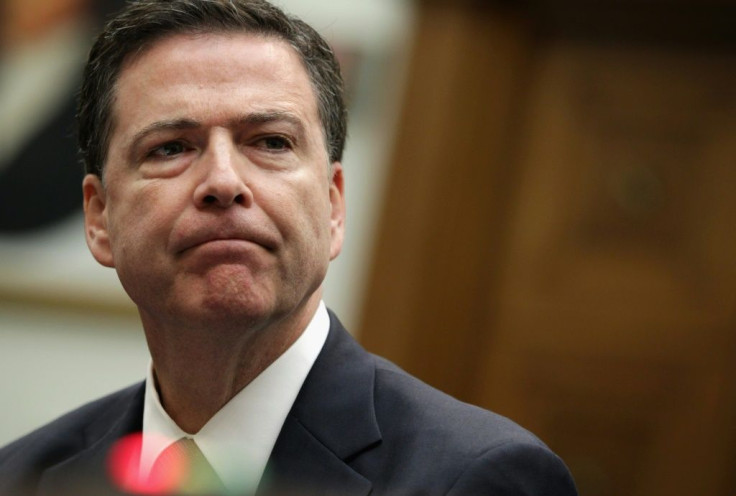Comey Admits 'Real Sloppiness' In FBI Russia Warrant Request

Former FBI director James Comey acknowledged Sunday "real sloppiness" in the bureau's handling of a warrant to surveil a Trump campaign advisor with ties to Russia.
The advisor, Carter Page, was an early focus of the national security probe that the FBI opened into Russian meddling in the 2016 presidential campaign.
Comey has long defended the FBI against attacks by President Donald Trump. But the former FBI chief admitted in an interview with "Fox News Sunday" that Page had been treated unfairly and that the FBI's application to surveil him, which Comey signed, contained "significant mistakes."
"There was real sloppiness, 17 things that either should've been in the applications or at least discussed and characterized differently. It was not acceptable," said Comey, who was fired by Trump in 2017.
The FBI's inspector general, Michael Horowitz, detailed the errors in a sharply critical report last week.
It found no political bias, however, in the FBI's handling of the investigation.
"The inspector general did not find misconduct by FBI personnel, did not find political bias, did not find illegal conduct," Comey said.
"The inspector general found significant mistakes, and that is not something to sneeze at; that's really important. But the American people -- especially your viewers -- need to realize, they were given false information about the FBI" by Trump and other critics of the bureau, he said.
Trump quickly turned to Twitter to taunt the former FBI director: "So now Comey's admitting he was wrong. Wow, but he's only doing so because he got caught red handed.
"So what are the consequences for his unlawful conduct. Could it be years in jail? Where are the apologies to me and others, Jim?"
Horowitz zeroed in on inaccuracies and omissions in the FBI's submission to the special FISA court that handles surveillance requests, under the Foreign Intelligence Surveillance Act.
Among his criticisms was the FBI's reliance on an unverified dossier by a former British intelligence agent, Christopher Steele, that drew attention to Russian efforts to infiltrate the Trump campaign.
Horowitz found that the court had not been informed that the dossier was paid for by Democrats, and yet it played a central role in establishing probable cause for obtaining the warrant.
According to the inspector general, the FBI also failed to inform the court that Page had reported to the CIA on his contacts with the Russians, and that subsequently an FBI lawyer allegedly altered an email to say Page was not a CIA source.
Asked about Horowitz's conclusions, Comey portrayed the dossier as "one of a bunch of different facts" presented to the court, but admitted: "It was the one that convinced the lawyers that they had enough now, with that added to the pile, to go forward."
Comey also acknowledged that, in renewing the FISA warrant three more times, the FBI should have informed the court that there were significant questions about the reliability of one of Steele's sources.
"But that doesn't drive a conclusion that Steele's reporting is bunk," Comey added, suggesting the source may have been scared off by the publicity surrounding the probe.
As for Page, Comey said he "was treated unfairly, most significantly by his name being made public. He's a United States citizen, and it never should have been made public, and that's an outrage."
© Copyright AFP 2024. All rights reserved.





















